Solutions
Customer Support
Resources
Your team just spent weeks negotiating a contract. All parties have signed. Everyone's happy.
But now comes the part that many organizations overlook: making sure the contract actually delivers its promised value. This is also known as post-award contract management.
Post-award contract management describes the process that happens after a contract has been signed by the parties involved. It’s a common term in the procurement industry, and is also known as post-signature contract management.
Typically, this post-award contract management process is comprised of several stages:
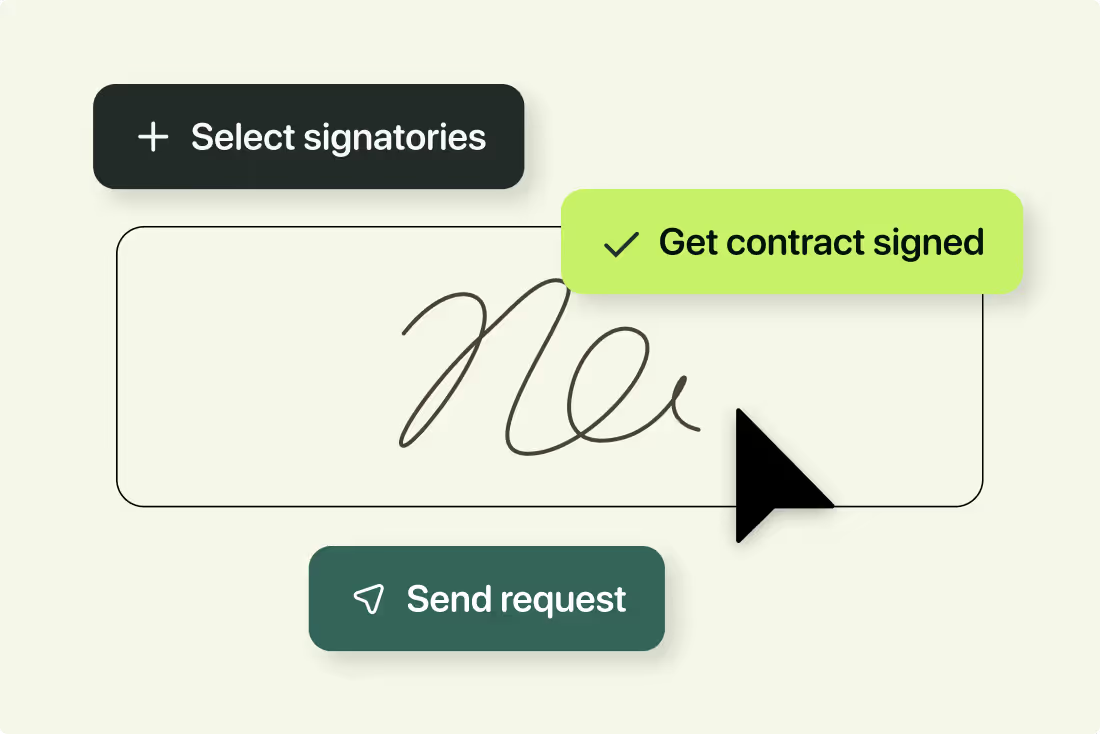
The contract being signed marks the conclusion of negotiations and the start of a formal, legally binding relationship between the relevant stakeholders. It also represents the contract being “awarded” to a chosen vendor - hence the name.
But winning the contract is only the beginning. Vendors need to fulfil their contractual obligations and keep the client satisfied if they want to retain the contract for the months and years to come.
Post-award contract management transforms legal documents into tangible business outcomes, making it perhaps the most crucial phase of the contract lifecycle.
Here’s why it matters.
Poor post-award contract lifecycle management bleeds revenue in ways that often go unnoticed. Missed contract renewal dates lead to unwanted contract extensions or terminations. Overlooked price escalation clauses leave money on the table. Untracked volume discounts never materialize into savings.
Research shows organizations can lose up to 9 per cent of a contract's value simply through inadequate post-award oversight – a number that becomes alarming when multiplied across your entire contract portfolio.
Effective post-award management transforms vendor and client relationships from transactional to strategic.
By actively tracking performance metrics, scheduling regular reviews, and maintaining open communication channels, you create opportunities for relationship growth and value creation.
This proactive approach helps identify issues before they become problems and spots opportunities for expansion before competitors do.
Without proper post-award management, teams waste countless hours manually tracking obligations, searching for contracts, and responding to urgent issues that could have been prevented.
Smart post-award contract management processes (supported by the right technology) free up your legal and procurement teams to focus on strategic work instead of administrative tasks.
As management guru Peter Drucker once said, "What gets measured gets managed". In other words, you can't improve what you don't measure.
Strong post-award management provides clear visibility into contract performance, supplier delivery, and value realization. This data informs future negotiations, helps identify high-yield contracts, and guides strategic decision-making right across the organization.

While organizations generally recognize the importance of post-award contract management, actually gaining effective oversight poses significant challenges in practice.
Most companies struggle with fragmented contract storage, scattering their agreements across shared drives, email folders, local computers, and physical filing cabinets. Teams waste valuable time searching for documents and risk missed deadlines. In many cases, they neglect it altogether.
The challenges compound as contract volumes grow. While spreadsheets and calendar reminders might suffice for managing a small number of agreements, they quickly become inadequate when tracking obligations, renewal dates, and performance metrics across hundreds of contracts.
Communication presents another hurdle. Post-award management requires seamless coordination between legal, procurement, finance, and business teams to get the things you promised to do done.
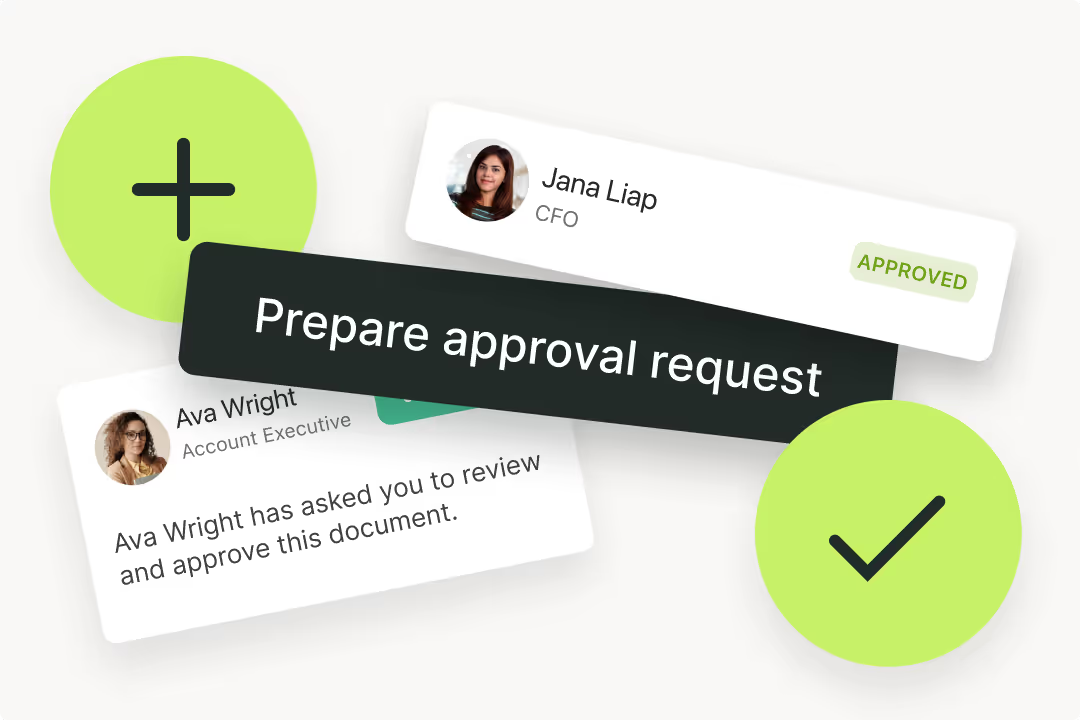
Without reliable communication channels and automated notification systems, crucial updates often get overlooked. Even seemingly small oversights, like missing a renewal notice, can trigger significant financial repercussions.
Perhaps most concerning is the widespread lack of structured performance monitoring. Many organizations operate without formal processes for tracking contract performance and compliance, creating dangerous blind spots in their operations.
This makes it nearly impossible to identify underperforming contracts, demonstrate return on investment, or capitalize on opportunities for improvement.
It’s not all doom and gloom. There’s a lot you can do to improve contract management during the post-award phase.
The even better news is that successful post-award contract management isn't necessarily about working harder – it's about working smarter.
Leading in-house legal teams follow these proven practices to maximize contract value while minimizing risk and resource drain.
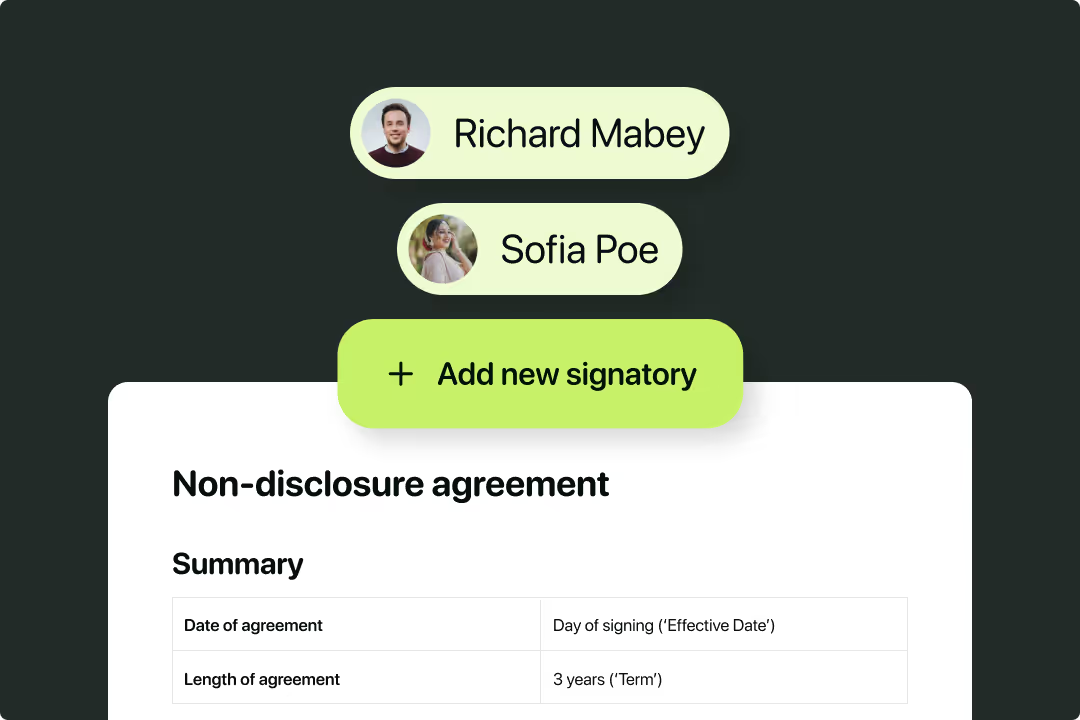
Modern contract management software has revolutionized how organizations handle the post-award phase. In fact, it’s estimated that automating these processes can reduce the cost of managing contracts by 10 and 30 per cent.
Let’s break down how a solution like Juro can empower you to master post-award contract management in 2026.
Centralized repositories eliminate scattered storage by providing a single, searchable home for all contracts and related documents. This enables instant access to agreements, version control, and the extraction of key contract metadata.
This delivers instant visibility into the execution of contracts, who they’re owned by, and where they are in the contract lifecycle.
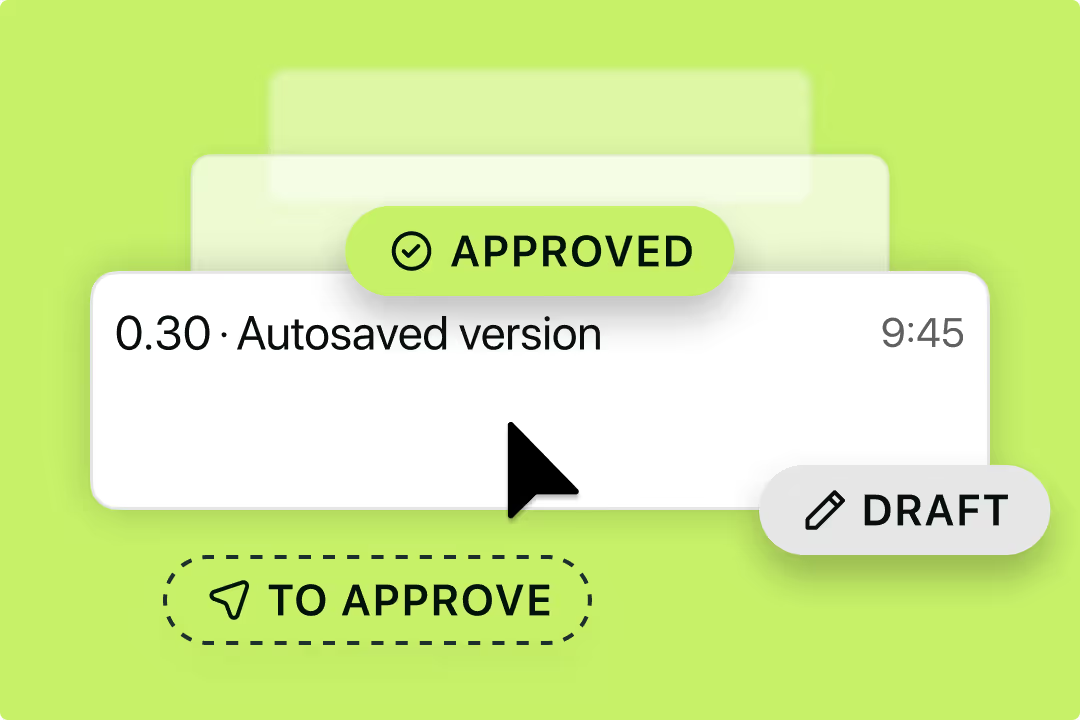
Collaborative workflows enable teams to work together seamlessly to review, negotiate, and eventually approve an agreement, all while maintaining proper access controls and audit trails.
This makes it easier than ever to follow up on contracts post-signature and collaborate to agree new outcomes, whether that’s the decision to push for a renewal, renegotiation, or a termination. These conversations can happen in one unified workspace.
Juro’s AI-powered extraction transforms contract data into actionable insights, helping teams identify risks, spot opportunities, and make more informed decisions.
In other words, you can harness the power of AI to analyse incoming contracts, tag metadata and act on it. The AI extracts key datapoints and uses them to populate smartfields in seconds, subsequently triggering workflows, automating calculations, and providing summaries if you want them.
This makes it easier than ever to surface and act on the data within your agreements.
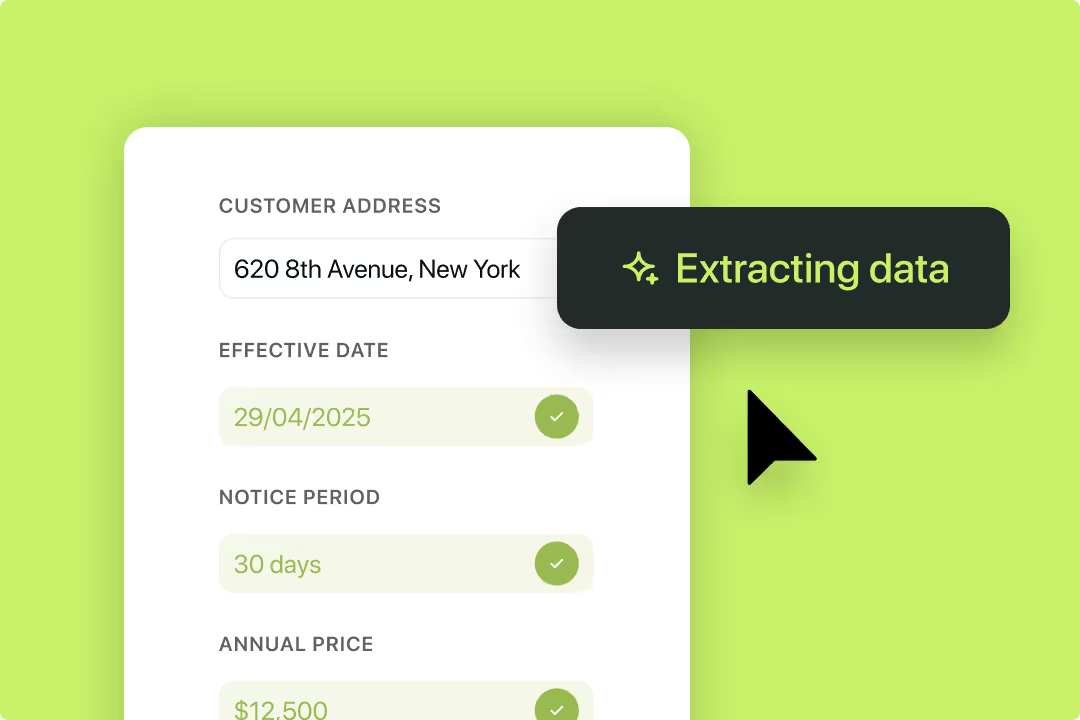
Juro's intelligent contract automation platform streamlines post-award contract management for businesses like yours.
Teams have access to a centralized contract repository with powerful search capabilities, and AI that identifies key datapoints within an agreement and sets actions based on these.
{{quote1}}
Ready to transform your post-award management from an administrative burden to a strategic advantage? Fill in the form below to get started.

Lorem ipsum dolor sit amet, consectetur adipiscing elit. Suspendisse varius enim in eros elementum tristique. Duis cursus, mi quis viverra ornare, eros dolor interdum nulla, ut commodo diam libero vitae erat. Aenean faucibus nibh et justo cursus id rutrum lorem imperdiet. Nunc ut sem vitae risus tristique posuere.

